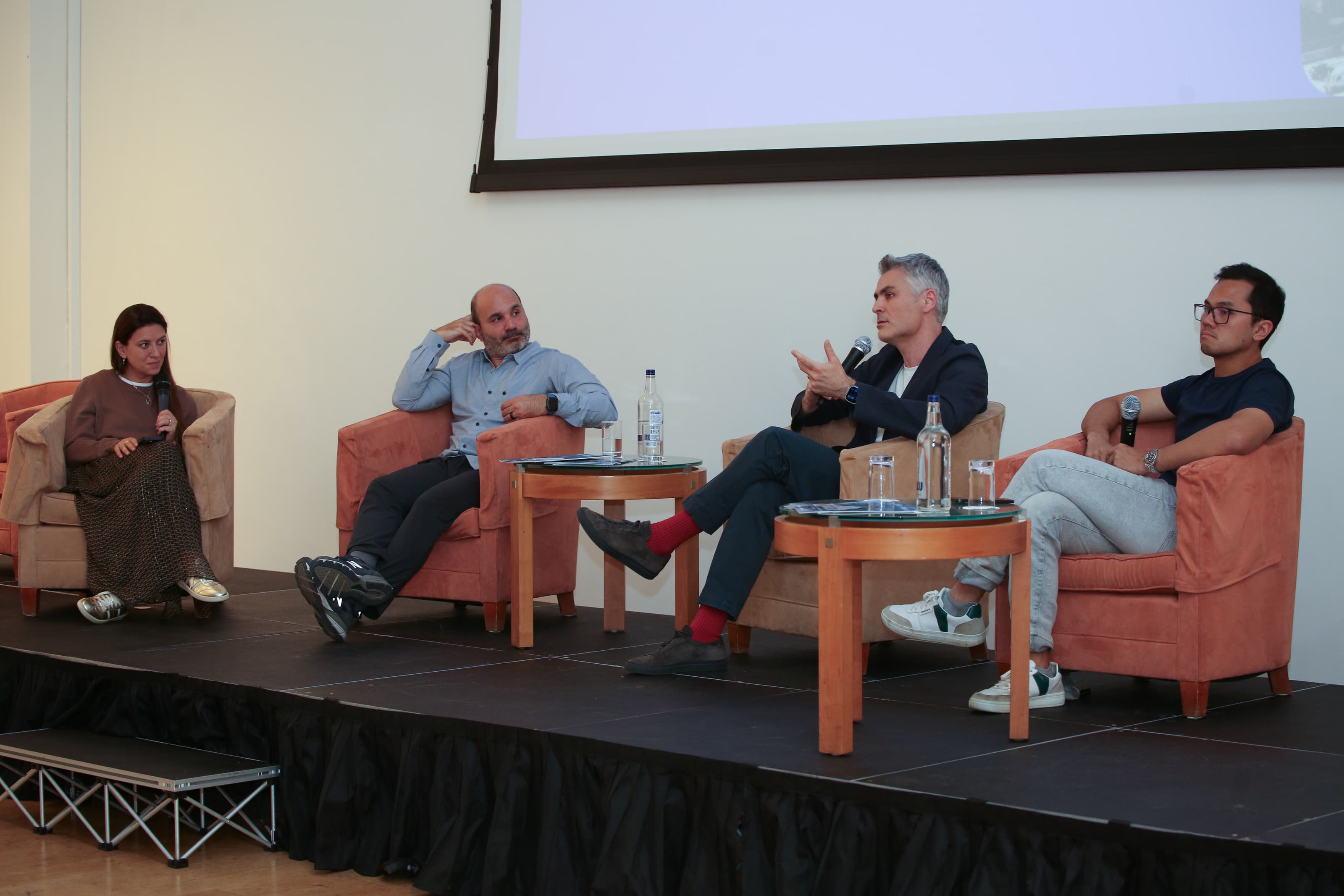The Multiplier Effect: How Founders Shape Ecosystems Beyond Their Companies
By Endeavor Greece May 19, 2025
At the 2025 Greeking Out in London, a packed room heard from three seasoned founders who have gone beyond scaling successful businesses to becoming catalysts for their ecosystems.
Moderated by Aslı Kurul Türkmen (Endeavor Türkiye), the conversation with Melih Ödemiş (Yemeksepeti), Sokratis Papafloratos (Numan), and Nico Barawid (Tunic Pay) explored what the Multiplier Effect really looks like in action: how founders become not just success stories, but force multipliers through mentoring, angel investing, and inspiring the next generation.
From First-Time Chaos to Global Vision
All three speakers reflected on how different their journeys look now compared to their first startups.
Melih, one of Turkey’s earliest tech success stories with the $600M sale of Yemeksepeti, recalled building in an ecosystem with virtually no support - no early-stage investors, mentors, or startup playbooks. “We didn’t know what hyper-growth looked like,” he said. “We bootstrapped for years. If I knew then what I know now, we might’ve bought Delivery Hero instead of being acquired.”
That early experience shaped how he gives back today: actively mentoring, investing, and staying close to founders, not as a distant advisor, but as someone in their corner.

Sokratis, now on his third company, shared how maturity has completely changed the way he builds. While his first venture was driven by raw energy and a short-term lens, Numan, a healthtech company focused on long-term men’s wellness, is built with a much more patient, global mindset. “Now, I know what kind of company I want to build, how long I want to build it for, and that I need people smarter than me to get there,” he noted.
For Nico, the contrast between his first and second company was clearest in how he approached fundraising and team building. “The first time, I saw investors as a badge of honor. This time, I asked them how they behave when companies fail. I told them when I’d make a decision, not the other way around.” He’s now building lean and deliberately - hiring fewer, sharper people and using AI as a force multiplier across the organization.

Building in the Age of AI
AI wasn’t just a passing mention - it was a recurring theme. Each founder had a different angle on how it’s reshaping what’s possible.
Nico spoke about building Tunic Pay during the rise of generative AI. “We evaluate AI fluency like we evaluate numeracy,” he said. “It affects how we hire, how we support customers, how we write code.” The goal isn’t just to use AI, but to architect companies around it - pushing the same impact with 1/10th of the team.
Sokratis shared how Numan is using AI at every level - from improving patient engagement to optimizing backend operations. But he emphasized that in regulated industries like healthcare, there’s a fine line. “We invest heavily in the infrastructure that makes AI usable - but also safe. It’s not about clinical advice, it’s about better experiences and outcomes.”
Even Melih, despite stepping away from operating, said the pace of technological change today would force him to relearn everything if he went back to the CEO seat. “Even as a founder with 15 years of experience, I feel like I’d be starting from scratch.”
From Diaspora to Driving Force
The panel also turned to the role of diaspora and whether founders need to move to global hubs like London or San Francisco to build big companies.
Sokratis offered a balanced take: being in a hub can help with relationships, talent, and chance opportunities. But now more than ever, it’s possible to build globally from anywhere. His own company already has 18 people in Greece and they’re doubling down.

Melih added that what was once seen as “brain drain” can now be seen as a strength. Turkey, like Greece, has developed a new generation of diaspora founders and operators with strong ties back home. What matters is not where they are, but whether they’re helping others build.
Why the Multiplier Effect Matters
Aslı brought the discussion full circle: the Multiplier Effect isn’t just about financial returns. It’s about returning to the ecosystem, as mentors, as early believers, as open doors. It’s about someone in Athens or Istanbul being able to pick up the phone and call someone in London or New York, and not feel alone.
It’s also about representation. Seeing someone who shares your story: who built big, failed fast, started over, or raised global capital, makes the journey feel possible.
And as this panel showed, that might just be the most powerful form of impact of all.
